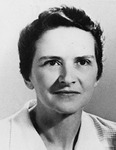This morning we got our first telephone call at five-thirty, telling us of what had happened at Pearl Harbor, Aparri and Baguio. To confirm this we had tuned in on the San Francisco station and then I called Dave’s quarters, but only to find that he had already gone to his office, and, as the line to Fort Santiago was busy all morning, I did not contact him before noon. I had things to do for a friend in Cebu, as she had sent a shopping list to me, so I went down and shopped until ten o’clock. At that time I was glad to get off the streets, as the natives were getting panicky, I stopped at Carl’s office for a few minutes talk with him before going home. While at his office the news came through that Fort Stotsenburg had also been bombed and that the Davao radio station was not coming through. I reached home at eleven and found a lot of telephone calls, but did not get them answered before a neighbor came in to talk it over with me. Carl came in at twelve-fifteen, while I was completing the calls and told me to get the Rhudies in Lusacan and tell them that we would be there this afternoon. Long distance was impossible, nor was I yet successful in getting Dave. We sat down to lunch which none of us relished and while eating decided that we would make the start for Lusacan (103 km.) at two-thirty. This would give me time for some hurried packing, and Carl time to go back to the office for a few minutes. The servants helped with the packing, while I gave orders to them to carry on the house for Carl until I returned. We attended to all details such as putting up the blackout curtains and getting the blue bulbs in, special orders to the grocer, etc.
At two-forty we were off and the car filled with baggage, what tinned goods we could pack in, and a newly cooked leg of lamb, the chauffeur, the amah I was taking with us, and the four of us. Carl had asked permission to drive as fast as the chauffeur could safely do, so he could return before dark after getting us settled. To this I consented but wondered how we could do it, The Rhudie’s house is about sixty miles from ours and darkness at this time of year comes before six o’clock. Our house is on the south side of the city about one mile from Nichols Field (our Army landing field). This field being one of the prime objectives of war, we knew that we were in the danger zone. Once on the way we passed guard after guard m full wartime attire until well past where the Nichols Field road came off the highway. Now on the road we found ourselves in a long line of cars, trucks, taxis and vehicles’ of all kinds and descriptions, bearing refugees as ourselves, and for the first fifty kilometers or more our speed was slowed down considerably. We looked about us at the line and held a kindred feeling for these people who were taking with them all supplies and possessions that were possible to pack or tie on to their conveyance, the same as we.
Long before we reached Lusacan we decided to abandon hopes of Carl’s return that night, and it is well that we did, for tt took two and a half hours to make the trip, as not only the traffic slowed us but we were stopped by guards at every bridge and on entering many of the small towns through which we passed. They were looking for Japanese, arms or bombs that might be smuggled. So when we reached the Rhudie’s gate and blew our horn, out came Oscar and Ada to meet us vowing that they were sitting there looking for us, though we had been unable to get them by phone. We were tired and dusty so were quickly established in their guest house where we had time to wash off the dust and freshen up a bit before supper that had to be eaten early on account of the blackout — a continuous blackout that would last for the duration of the war.
Now for a word about the lovely retreat into which we took refuge. Oscar and Ada are among our oldest friends in the Islands, wonderful people they are — the kind to whom a friend turns m time of trouble, knowing that the need will be met with understanding hearts. Ada is an ex-Army nurse and Oscar, an engineer. They have no children of their own, but everybody’s children belong to them. Oscar is in charge of the Blue Bar Coconut factory here, one’ of the largest on the Islands, which employs twelve hundred workmen. Ada keeps herself occupied with looking after the house and the guest house which sit in an enclosure of some five acres with a beautiful lawn heavily shaded with coconut trees. She gives much time to her flower garden, orchid bower, chicken run, pigeons and her wonderful companion Hannah, an English Bull Terrier. Nor does she forget to keep a watchful eye on the hospital, often making calls on the nurse and her attendant in charge. The hospital is small, but equipped to take care of dressings or any accident that may occur in the factory. Lusacan is south of Manila, while Baguio is north. We are more fortunate in being here with these dear friends than I can express in words. The last thing I did was to get in touch with Dave before leaving Manila, and he was so happy over our decision, but when I told him that I thought that we would be away only a few day’s, he said to pack plenty of clothes for at least a three week stay.
